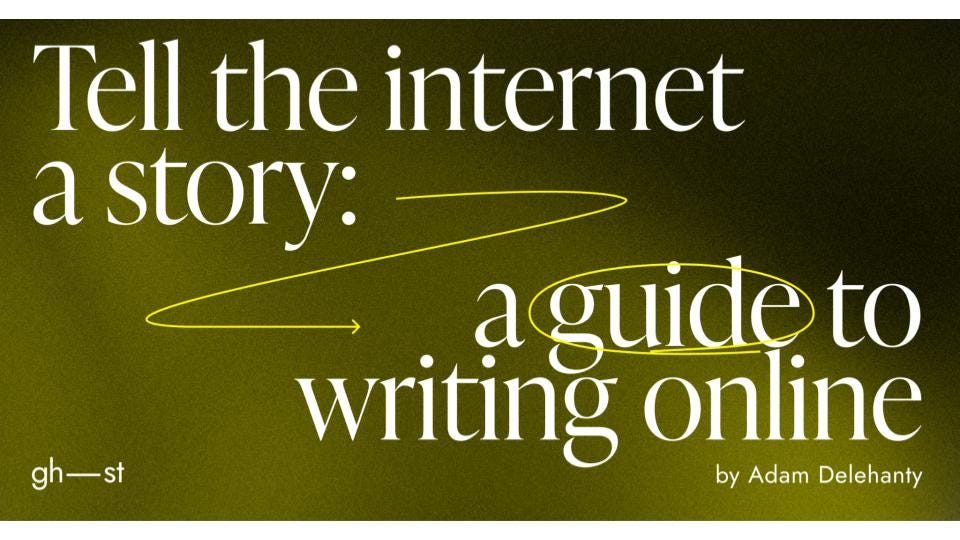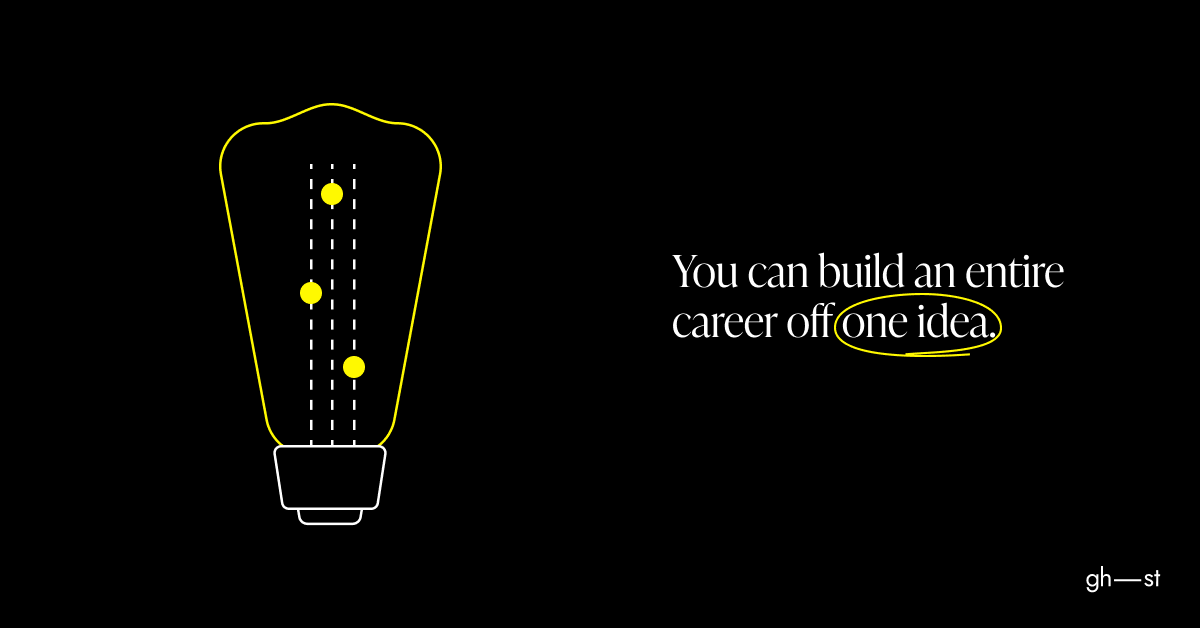Every day, I help people tell their story on the internet.
Of course, every project and client is different. But over the last six years, there are a few recommendations that I keep coming back to.
It only felt right to share them publicly.
Whether you’re a founder, a creator, an investor or just someone shaping their little corner of the internet, I hope these ideas spark something in you.
1. The more we write in public, the less we have to introduce ourselves in private.
Every week, most of us introduce ourselves to strangers in poorly-lit zooms and cacophonous happy hours: our background, our interests, our reasons-for-being. It rarely comes out right. When we write in public, we can advance those conversations by moving beyond the basics faster. The quality of our conversations – and our conversational partners – improves when we share our opinions in public writing and give others something to respond to.
2. The best sentence is short.
In school, we are taught that sophisticated writing includes semicolons, big words and complex structures. But complicated writing is not great writing. It’s just a burden on the reader.
More words and longer sentences = more room for confusion. The best (and shortest) sentences leave space at their edges for the reader to fill in. They are invitations, not explanations. As Verlyn Klinkenborg writes: “The longer the sentence, the less it is able to imply.”
3. You can build an entire career off one idea.
One argument, repeated and expanded and applied across disciplines, can do more than a thousand half-baked blog posts.
What’s the one idea–or word–that encapsulates your particular experience and way of looking at the world? What’s the question you’ll never get bored of asking?
Let go of the expectation that you need to release 25 albums to be respected; start with one weird and wonderful song.
4. Write for the 98% who don’t get it, not the 2% who already do.
One of the mightiest creative blockers is the idea that some people–often, the people we look up to most–will roll their eyes at our comparatively basic ideas. The first question to ask: is this true? And second: what if the opposite were true, and they appreciated your take because it brought more people into the conversation?
Remember, you are further ahead in thinking about something than just about everyone. When we position our writing as in service to this audience, it gives us the confidence to press ‘send’. Instead of writing to impress our heroes, write to become the hero.
5. No one has any idea what you’re about.
Many of us assume that others have some understanding of what we do, why we do it – the basics of our work and our interests. But they don’t. We need to put in work to clarify and then broadcast this story.
Doing so, we send a signal that can attract like-minded collaborators, investors, partners and friends. It’s humbling (and freeing) to remember that no one is ever thinking about us; it’s also an opportunity to shape those thoughts from the ground up.
6. Introduce yourself through your future, not your past.
Our dreams are the flickery lantern that attract others to our cause. Our resume, on the other hand, gives us the credibility and insights to bring those dreams to life.
Still, our credentials are rarely as interesting – or as inspiring – as the vision that guides our work or creative output. When you introduce yourself, open with your why, not your resume.
7. Place your story within two others: one ancient, one contemporary.
There are only so many stories. When we reach back into history, we show how our own experience (our life, our invention, our revelation) corresponds to something bigger and more essential.
Some of the best writing is framed by this echo between the deep and more recent past. Seek out the stories from literature, science, religion or art that put your own argument into sharper relief. Then, explain how those older stories are manifesting today.
8. The name of your idea is just as important as the argument behind it.
When we collapse our thinking into a phrase, meme or name that’s easy to pass on, we give our ideas the best possible chance to spread. The best names feel like inevitable
additions to our collective vocabulary (“1000 True Fans”, “Radical Candor” even “web3”). They spark interest and invite explanation without giving the whole argument away. Think of a name for your idea that invites an explanation.
9. Create a body of work that compounds on itself.
Referencing our prior ideas reinforces their influence and builds long-term intimacy with readers. Instead of constantly reaching toward the next new thing, take your readers on a slower, ongoing intellectual journey.
How has your previous thinking evolved? What’s a recent example or story that added nuance or disproved your initial thesis? Our best ideas deserve revisiting; they rarely receive it.
Thanks to Max Coyne-Green, Dan Hunt and Dan Elbert for talking through these ideas, and to Gina Liu for support on design.















I love #8!! and love your work, Adam! Thanks for sharing this.